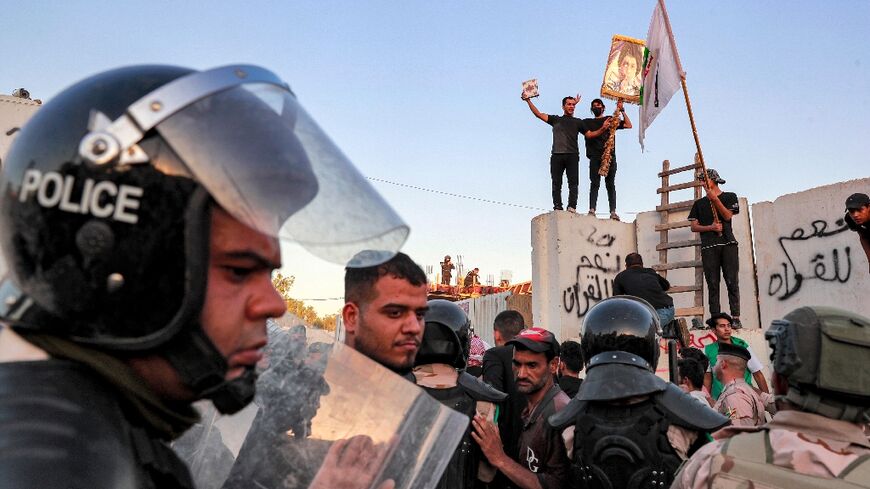Tensions flared between Iraq and Sweden Thursday over a Stockholm protest in which a man stomped on the Koran, weeks after he had burnt pages of Islam's holy book, sparking widespread Muslim anger.
News that Swedish authorities would permit the protest to proceed on free speech grounds had led hundreds of Iraqis to storm and torch Sweden's Baghdad embassy in a chaotic pre-dawn attack.
Iraq's government condemned the attack, but retaliated against the protest in Sweden by expelling its ambassador, vowing to sever ties and suspending the operating licence of Swedish telecom giant Ericsson.
Around the time of the protest outside the Iraqi embassy in Stockholm, Iraqi Prime Minister Mohamed Shia al-Sudani "instructed the Swedish ambassador in Baghdad to leave Iraqi territory".
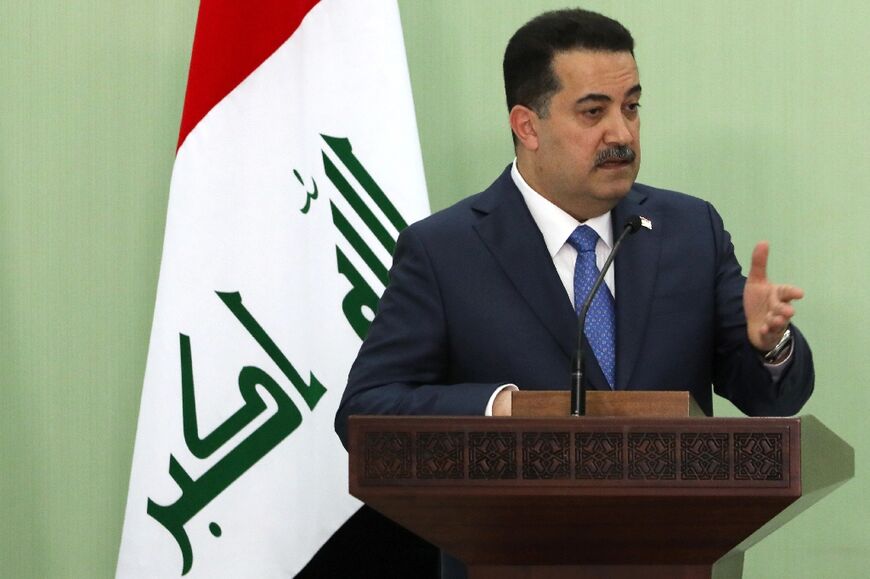
The decision was "prompted by the Swedish government's repeated permission for the burning of the Holy Koran, insulting Islamic sanctities and the burning of the Iraqi flag", his office said.
In the end, Sweden-based Iraqi refugee Salwan Momika, 37, stepped on the Koran but did not burn pages as he did last month outside Stockholm's main mosque.
Sweden and other European countries have previously seen protests where far-right and other activists, citing free speech protections, damage or destroy religious symbols or books, often sparking protests.
- Night of chaos -
Advance news of the planned Stockholm protest had prompted hundreds to mass at its Baghdad embassy overnight -- as they did in response to June's Koran burning -- before scaling the walls and torching buildings.
The protesters -- followers of powerful Shiite Muslim cleric and political leader Moqtada Sadr -- clashed with riot police who used electric batons and water cannon to disperse them.
Protester Hassan Ahmed told AFP that "we mobilised today to denounce the burning of the Koran, which is all about love and faith".
Calm had returned by morning, when police blocked access to the embassy, but the extent of the damage remained unclear.
Some 200 protesters gathered again in central Baghdad late Thursday, raising copies of the Koran and Iraqi flags as well as those of the Iran-backed former paramilitary Hashed al-Shaabi.
"Yes, yes to the Koran!" some shouted as others waved pictures of Iran's supreme leader Ayatollah Ali Khamenei and a Swedish flag was burned.
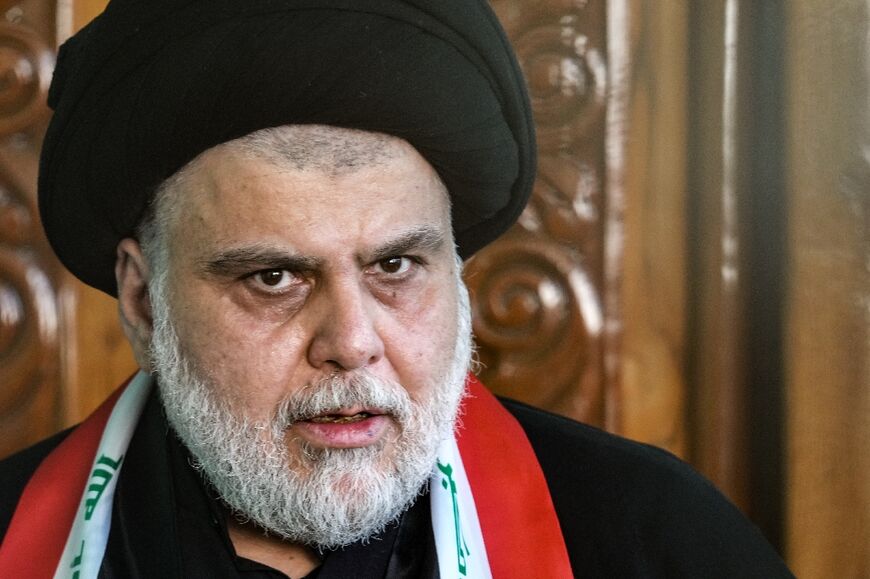
"This is considered a sinful attack against the two billion people who believe in this Koran," said protester Ahmed al-Maliki, 46, welcoming the diplomatic moves against Sweden.
Sweden's foreign ministry told AFP all of its employees in Baghdad were "safe" during the overnight unrest.
Swedish Foreign Minister Tobias Billstrom said in a statement Iraq's charge d'affaires would be summoned over the "completely unacceptable" attack.
Washington also condemned the attack, with US State Department Spokesman Matthew Miller saying it was "unacceptable" that Iraqi security forces did not act to prevent it.
France also condemned the embassy attack.
Turkey's foreign ministry called on Sweden to take "dissuasive measures to prevent hate crimes against Islam and its billions of followers".
And in Lebanon, the leader of the pro-Iranian Hezbollah movement Hassan Nasrallah called for expulsion of the Swedish envoy there and the recall of Lebanon's ambassador to Sweden.
"It's the minimum required," he said.
- 'Severing relations' -
Iraq's premier called an emergency meeting Thursday and strongly condemned the embassy attack, as a security source told AFP about 20 protesters had been detained.
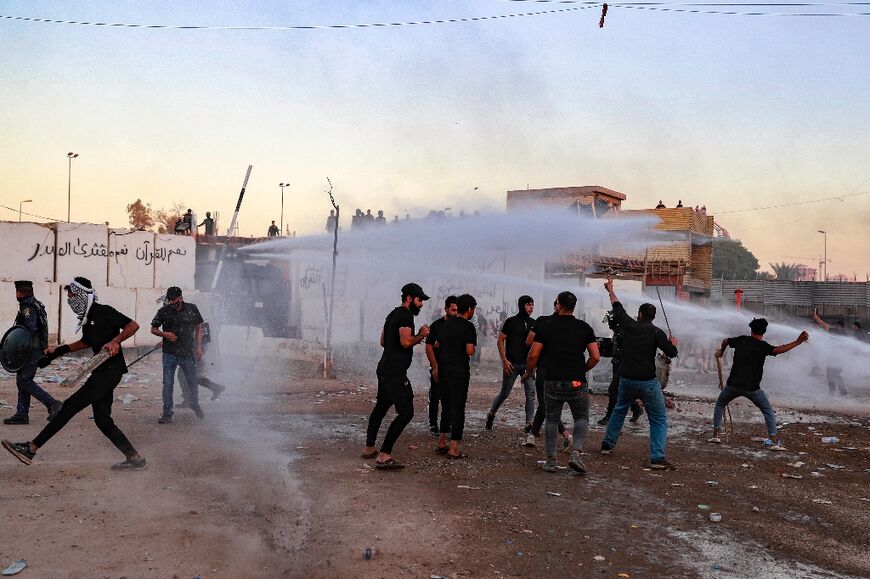
But Sudani's government also warned Sweden against allowing the second Koran protest to go forward.
Baghdad said it had informed Stockholm "that any recurrence of the incident involving the burning of the Holy Koran on Swedish soil would necessitate severing diplomatic relations".
The 57-member Jeddah-based Organization of Islamic Cooperation also denounced the Stockholm protest as "another provocative attack" that could not be justified under the right to freedom of expression.
A Jordanian foreign ministry statement slammed it a "reckless act that fuels hatred".
Swedish police had granted a permit for the protest in line with freedom of assembly and free speech legislation.
"The constitution states that a lot is needed to deny a person a permit for a public gathering so the day before yesterday we granted a permit for a private individual to protest," Ola Osterling of the Stockholm police told AFP.
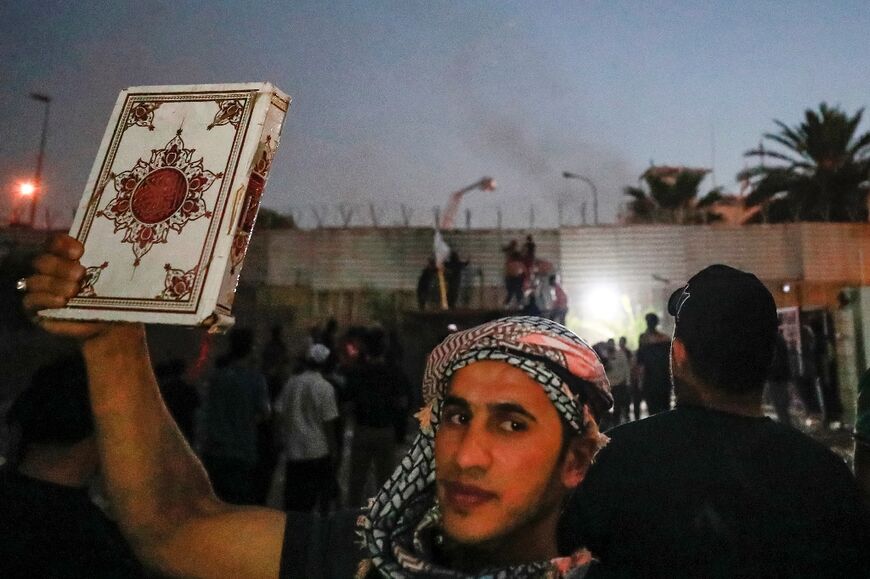
Momika previously burnt pages of the Koran on June 28 outside Stockholm's largest mosque during Eid al-Adha, a holiday celebrated by Muslims worldwide.
That incident sparked indignation and diplomatic protests across the Muslim world, and prompted Sadr followers to briefly storm Sweden's Baghdad embassy the following day.
Sadr repeatedly mobilised thousands of demonstrators. Last summer, during a dispute over appointing a new prime minister, his supporters invaded parliament building and staged a weeks-long sit-in.
burs-jj/giv

